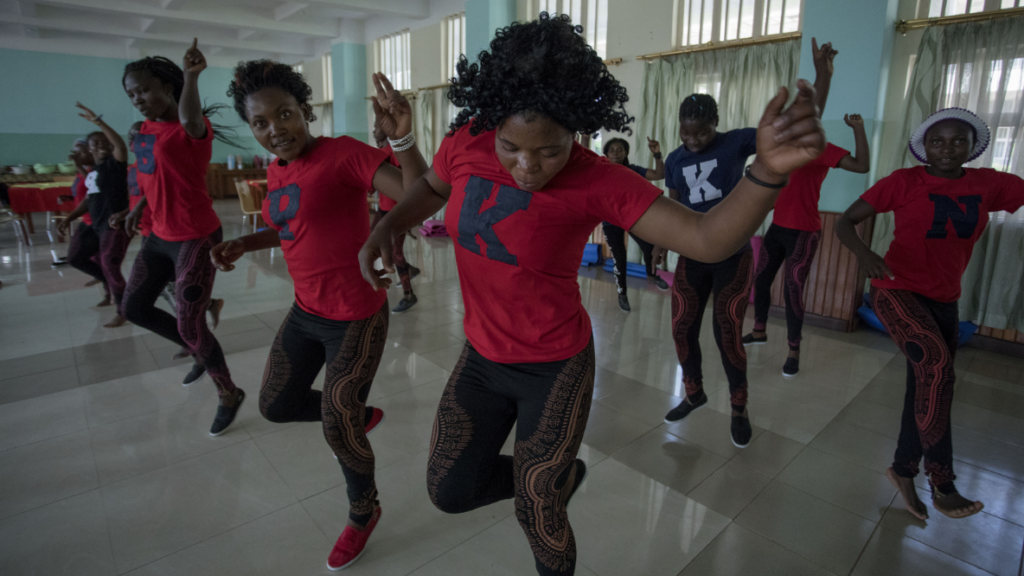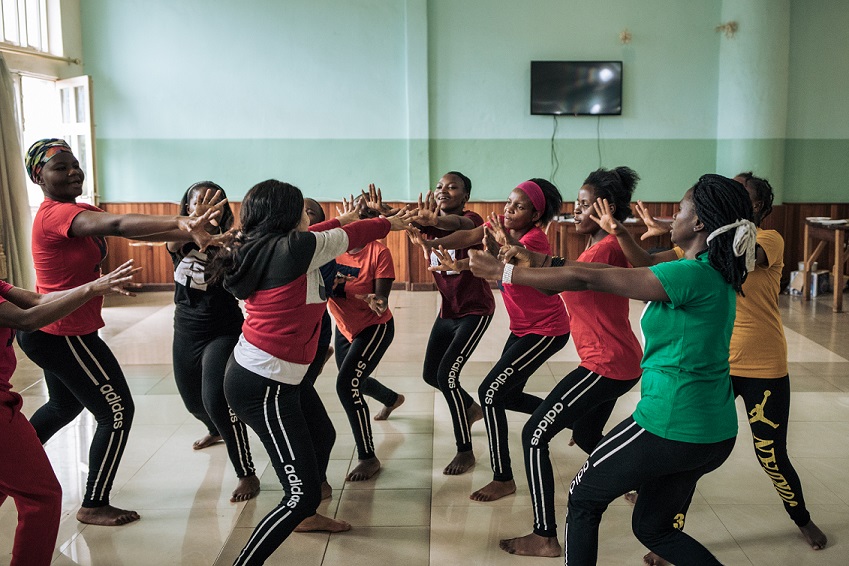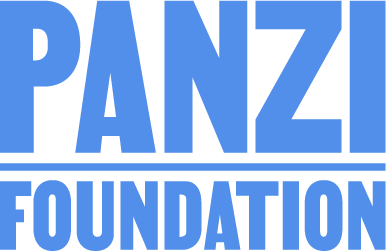Like all of the staff at Panzi Hospital and Foundation, Amina Lusambo (affectionately known as Ami to her colleagues) has seen far too many young women and girls grappling with the devastating consequences of rape as a weapon of war.
At Panzi, survivors received medical and psychological care, yet they remained despondent. The trauma and stigma they had endured trapped them in a state of silence. Survivors as young as eight could not process what had happened to them and did not know how to express themselves.
Dance, Ami realized, was a way for survivors to reconnect with their bodies and could be a sustainable method of coping with symptoms of PTSD, depression, and anxiety. Dance also became a platform for survivors to build relationships with other survivors who understood their experiences and pain.
“You can do more in one month of dance than in three months of psychotherapy.”
Although Ami has witnessed the benefits of dance therapy for years, the scientific community is now formally recognizing the benefits of movement-based therapies—especially when applied to those suffering from PTSD.

Ami has danced with approximately 400 survivors, most of whom are between 11 and 20. She is particularly passionate about working with child survivors.
“When a child is shouting, it should touch you as if it was your own child,” she said emphatically, emphasizing the role of our collective responsibility.
Along with leading dance therapy, Ami is training to become a clinical psychologist. To counteract the emotional burnout that plagues many psychologists who work with survivors, Ami thinks of the dance sessions as her own form of therapy.
“It’s everybody’s responsibility to raise the voices of survivors.”
Ami still keeps in touch with many women who danced alongside her. Some have since fallen in love, gotten married, and had children. Although the work is challenging and emotionally demanding, her belief in our collective responsibility to support survivors keeps her going.


Click here to learn more about Panzi’s holistic healing model, including the psychosocial pillar.
